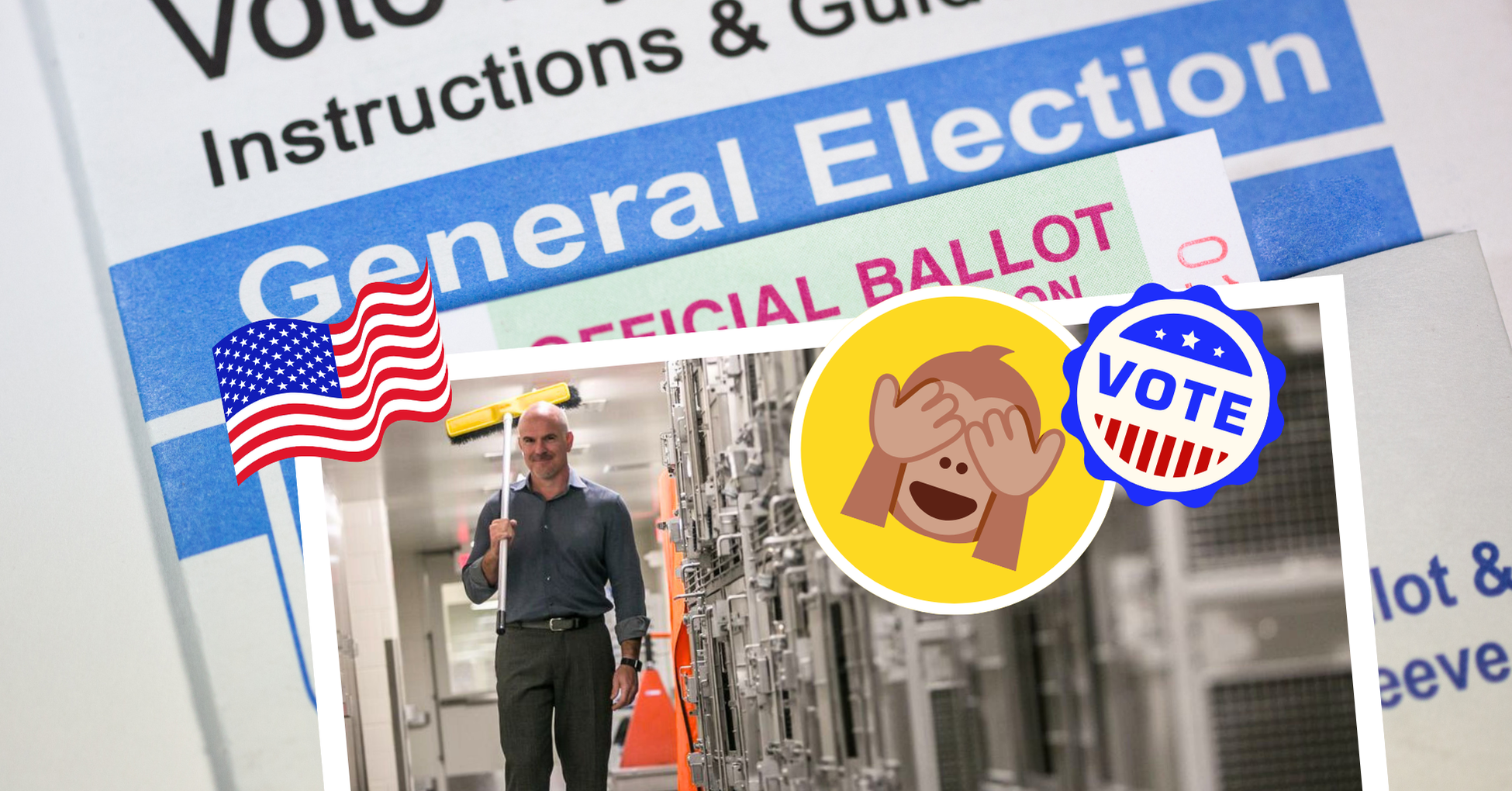
Researchers Exploit Monkeys in the Name of Today’s Election
Election Day is a day of stress for many humans . . . and, “thanks” to the ever exploitative animal research industry, for many other-than-humans, too.
Leading up to today’s big event, animal researchers have cited questions about human decision-making in a human-specific political system as reasons to exploit non-humans for profit.
Lending a face to these ugly experiments is vivisector Michael Platt of the University of Pennsylvania, who depicts himself posing for the camera and donning a smile while standing outside small metal boxes that almost certainly imprison some of his victims.

Platt claims to be “known for asking some of the most challenging questions in 21st century neuroscience–and conceiving innovative ways to find the answers.” Tellingly (for the industry he represents), though, these “most challenging questions” appear to include “which of two political headshots do monkeys look at longer?”, and these “innovative ways” of finding answers amount to the same types of use, abuse, and enslavement that have been forced upon animals for decades.
In an article published on Sunday, Platt boasted of forcing monkeys to look at pictures of political candidates to study “primal preferences”, wanting us to believe that this “new research” informs modern-day, human elections, like today’s.
Only, it doesn’t in any new or meaningful (or ethical) way.
Platt’s research does not even provide novel information; rather, it merely recreates previous human findings. Platt himself acknowledges that previous research on humans of varying ages has already demonstrated that humans “can accurately predict election outcomes after quick exposure to candidate photos” (i.e., that humans can do the very thing being tested in the monkeys for the supposed purpose of telling us about humans).
And, even more damningly, Platt concedes that his findings may well not inform human outcomes: “Of course, voters are not macaques”, he says, before adding the quintessential animal research catchall: that his “findings” could be relevant to humans. (He’ll need to conduct endlessly more animal research to determine this, of course….)

Bottomline: Instead of learning about humans by observing and studying the tens of millions of active human voters, U.S. animal researchers (including those who claim an expertise in decision-making, no less!) want us to believe that a better approach to learning about human voters is to study nonhuman nonvoters.
It’s curiosity, opportunism, and greed packaged as “science” — but blink and you might miss it . . . just like you might miss the exploitation and human harm subtly screaming out from Platt’s website’s main picture.
A quick glance identifies several monkeys sitting amid foliage, spurring thoughts of wild animals living freely; but a longer look recognizes two of the monkeys’ huge chest tattoos – borne of ink forced under their skin by humans to signify their “status” as “products” for human use.
Animal research is a cruel bait-and-switch, but, if you just look a second longer, you’ll see it, every time.
So, election or no election — and no matter the outcome of today’s elections — one thing is clear: we must unite to end this unethical, perverse industry.
Share this story on Facebook or X (Twitter) now.